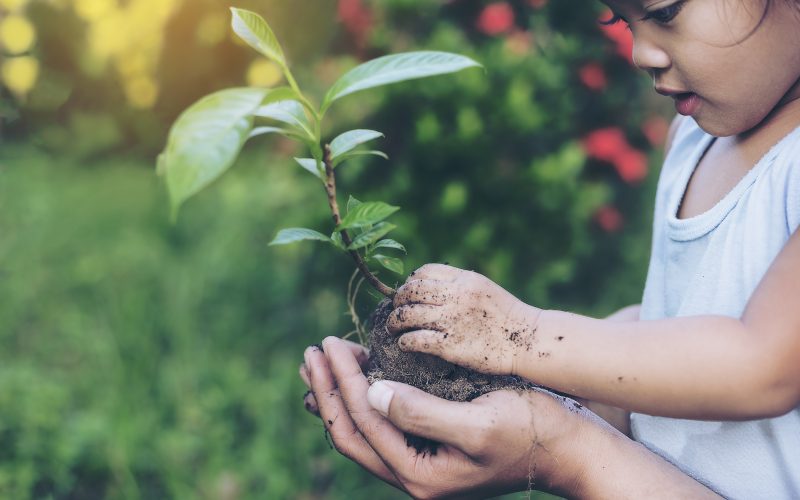At Gills Onions, so much of what we do and how we do it is because we are thinking about future generations. We employ sustainable farming practices and strive to minimize our impact on the environment. But we realize that some of the most important work for the rising generation is done by parents in their homes.
Talking to children about where their food and clothing comes from and the importance of sustainable agriculture is essential. When a child appreciates the role of agriculture in their everyday life, they are more conscientious about their own impact on our earth and want to share what they’ve learned with others. That is the basis of true change.
How do you talk to your children about agriculture and sustainability? How can you help them gain an appreciation and respect for this essential industry? Here are a few ideas.
Do You Know Where Your Food Comes From?
Behind every piece of food you eat is a farmer. Farmers are also responsible for many of the clothes you wear, the carpets you walk on, the bedding you sleep with, and even the bandages you use when you’re injured. Agriculture keeps us alive, but farmers are one of the most forgotten groups of essential workers in our country.
Starting a conversation on this important topic is simple. You may try asking your children, “Do you know where your food comes from?” or “We bought this onion at the store, but do you know where it came from before that?”
Remember that a simple explanation is always best. Allow your children to lead the conversation and ask questions. Be honest and open, and if you don’t know the answer, say, “Let’s learn about it together.”
Fun Ideas for Learning About Agriculture
If you think agriculture is boring, think again! There are so many fun activities you can do with your children to learn more about farming, sustainability, and caring for our earth’s precious resources. Here are some of our favorites:
- Go to the library and check out books about farming and agriculture.
- Look up your child’s favorite fruit or vegetable online and learn about how it grows and how it is harvested and brought from the farm to your table.
- Grow your own garden. You can even begin with a single potted plant in your windowsill. Teach children the basics of growing.
- Visit a local farm and learn firsthand from a real life farmer.
- Spend time on YouTube watching videos on growing and harvest crops (we use some pretty cool heavy machinery). You can even take virtual farm tours.
- Conduct farming experiments. Expose plants to different nutrients and stimuli and observe how they react.
- Join a local farming co-op to try new vegetables directly from local farmers.
- Have children help plan family meals and shop for ingredients.
- Visit a farmer’s market and talk to the farmers about their goods.
- Visit a local pick-your-own fruits and vegetables farm.
Healthy Habits Start with Food Appreciation
Obesity now affects 1 in 5 children and adolescents in the US. Part of encouraging children to develop a healthy relationship with food is being grateful for the food we eat. As children are exposed to a variety of fresh foods and are excited about trying new fruits and vegetables, they will develop healthy habits and positive associations with what they eat.
And, as children think about caring and nurturing for the plants and animals that feed us, they will also think about sustainable ways to care for our planet and preserve it for their own children.

